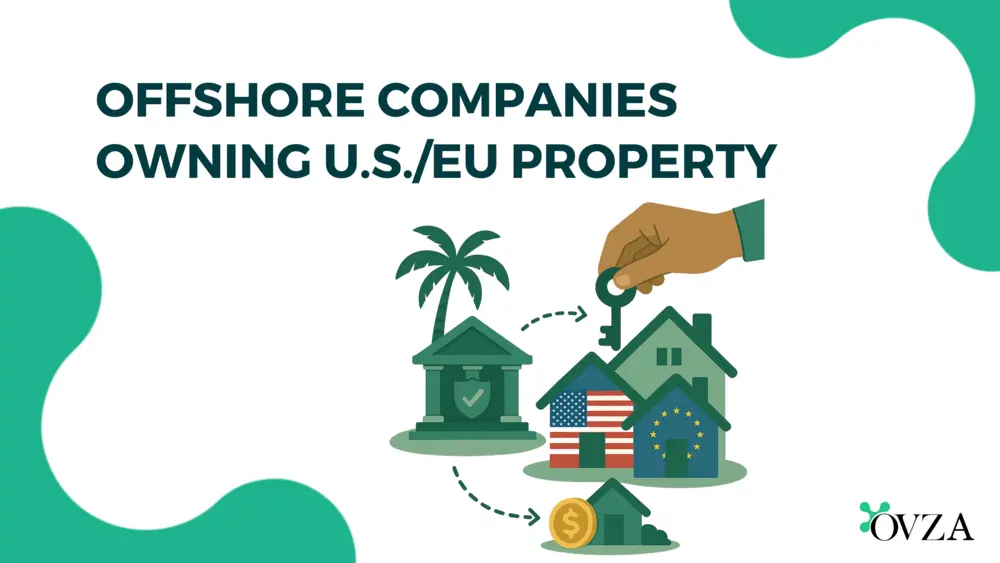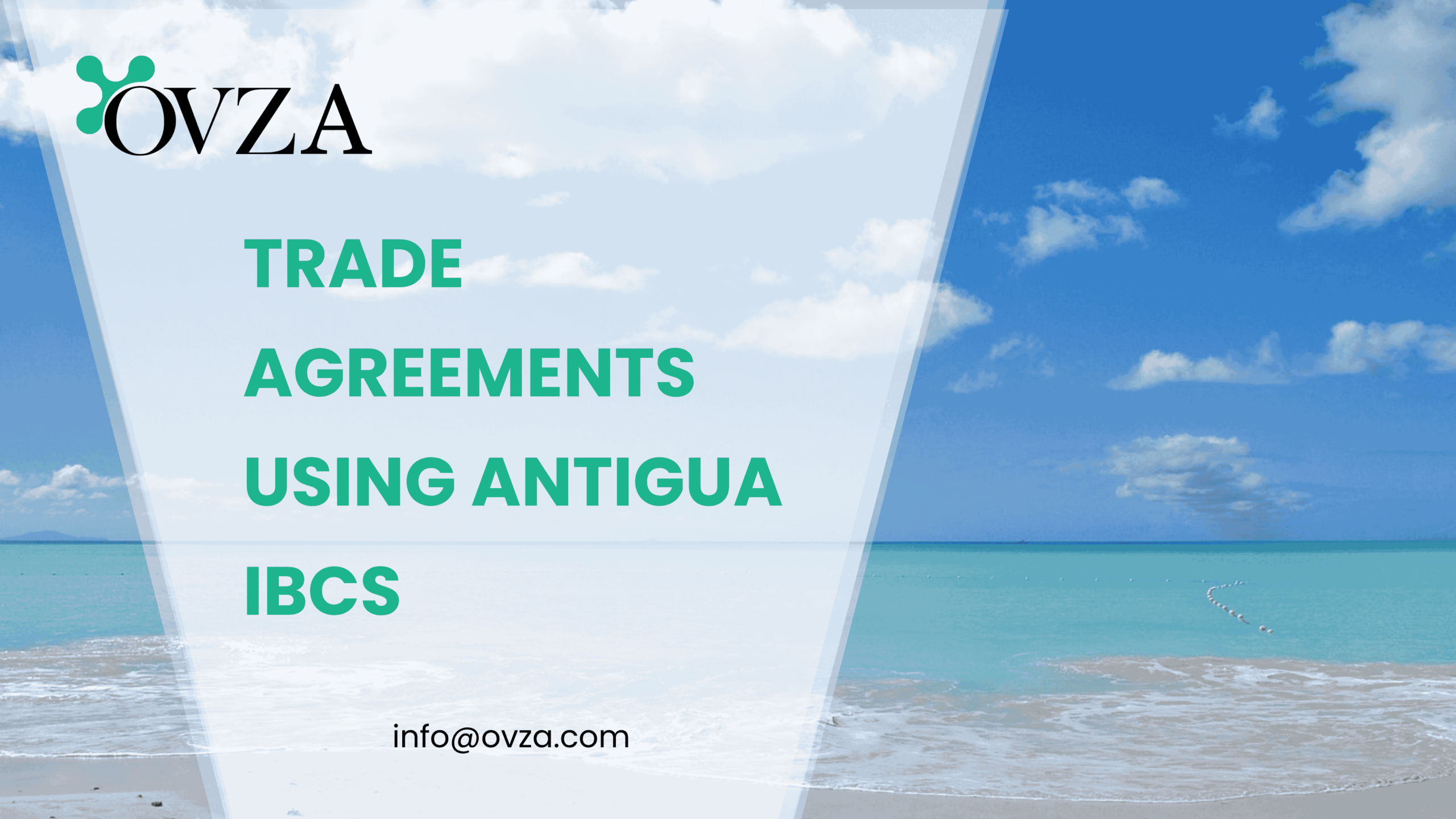Offshore companies’ ownership of U.S. or EU real estate is permissible with proper structuring, subject to FIRPTA, anti-money laundering (AML) regulations, and applicable tax compliance rules. Owning property through an offshore company can offer legitimate benefits, such as estate planning, liability limitation, and international tax optimization. However, both the United States and the European Union enforce strict laws governing foreign ownership, corporate transparency, and cross-border taxation. Understanding these legal frameworks is critical for avoiding unintended liabilities.
1. U.S. Real Estate and Offshore Companies
In the global investment landscape, property ownership continues to attract foreign investors seeking long-term growth and capital preservation. A common question that arises in this context is: Can offshore companies own property in the U.S. or EU? The answer is yes, but the path to doing so legally and effectively requires close attention to tax law, disclosure rules, and jurisdictional compliance. In the United States, there is no legal restriction preventing an offshore company—such as a BVI IBC or Nevis LLC—from owning real estate. Foreign corporate ownership of U.S. property is widespread and lawful. However, such ownership is not without consequence. U.S. law imposes extensive tax and reporting obligations on foreign entities that hold assets or conduct transactions within its borders.
Under the Foreign Investment in Real Property Tax Act (FIRPTA), foreign corporations disposing of U.S. real estate are subject to U.S. income tax on any resulting gains. This means an offshore company that sells a U.S. property must report and pay tax on that transaction, typically by filing IRS Form 1120-F. In addition, most foreign-owned entities must obtain a federal Employer Identification Number (EIN) and may be required to file annual returns. Starting in 2024, offshore entities formed or operating in the U.S. will also be subject to the Corporate Transparency Act (CTA), which mandates that beneficial owners be disclosed to FinCEN. This new law essentially eliminates anonymity for offshore companies holding U.S. assets unless exempted under narrow criteria.
In addition to federal rules, state-level compliance is equally important. Offshore companies acquiring property in jurisdictions such as Florida, California, or New York must often register as a foreign entity with the Secretary of State before legally taking title. This registration ensures the company is subject to local commercial law and is recognized as a legal owner of the property. Another issue that is frequently overlooked is the impact of U.S. estate tax. Even if property is held in the name of an offshore company, U.S. estate tax can still apply if the underlying owner is a non-resident individual. Without careful structuring—such as through a blocker entity or non-transparent holding structure—heirs may face unexpected tax liabilities upon succession.
2. EU Real Estate Ownership Through Offshore Companies
While the United States provides a relatively unified federal framework for offshore ownership of real estate, the European Union presents a more fragmented and jurisdiction-specific legal environment. That said, the answer to the recurring question—Can offshore companies own property in the U.S. or EU? —remains the same: yes, they can, provided local laws are respected. Most EU member states, including Spain, France, Portugal, Germany, and Italy, legally permit foreign companies to purchase and hold real estate. However, these permissions come with conditions that often require corporate transparency, local tax compliance, and administrative registration.
Offshore companies that acquire property in the EU are generally required to register with the local tax authority. This registration often includes disclosing the ultimate beneficial owner, assigning a local tax identification number, and in many cases, appointing a tax representative in the host country. The acquisition process will also involve notarial contracts and national land registries, which are increasingly integrated with anti-money laundering (AML) systems. These rules are enforced through the EU’s Fifth and Sixth Anti-Money Laundering Directives, which aim to prevent tax evasion, terrorist financing, and opaque property transactions. As a result, anonymity is difficult to maintain in the EU. In some jurisdictions, beneficial ownership information is accessible to the public, while in others, access is limited to government authorities. These changes are largely driven by the European Union’s implementation of the Fifth and Sixth Anti-Money Laundering Directives, which mandate the disclosure of corporate ownership to prevent tax avoidance, terrorist financing, and illicit capital flows.
Owning EU property through an offshore company does not exempt the owner from taxation. In nearly all cases, local laws require offshore companies to pay corporate income tax on rental profits generated from the property, as well as capital gains tax if the asset is sold at a profit. Some jurisdictions also impose annual wealth or property taxes. For example, France has an annual tax on high-value real estate, and Spain applies property ownership taxes that apply regardless of the owner’s residency. Furthermore, in jurisdictions with aggressive tax enforcement agencies, the offshore company’s structure may be challenged if it lacks economic substance. Authorities may apply Controlled Foreign Corporation (CFC) rules to attribute the income of the offshore entity to the beneficial owner directly, especially if the offshore entity serves no active commercial purpose.
An increasingly common requirement across Europe is proof of economic substance. If the offshore company has no office, employees, or operations in its jurisdiction of incorporation, tax authorities may disregard the entity altogether. This exposes the beneficial owner to direct taxation and can lead to retrospective audits, fines, or litigation. As such, while it is legally permissible for an offshore company to own property in the EU, doing so without a sound legal structure, tax clarity, and documented substance can result in serious financial and legal consequences. Offshore structures that lack local substance may be challenged under Controlled Foreign Corporation (CFC) rules, as defined in OECD guidance, leading to reclassification of income and retrospective tax assessments.
3. Strategic Structuring and Legal Risk Management
For investors seeking to hold real estate through foreign entities, the core question—Can offshore companies own property in the U.S. or EU? —is not just about legality, but about how to structure ownership in a way that complies with the laws of both the offshore jurisdiction and the country where the property is located. While the ownership itself is permitted, the structure behind it must be strategically built to withstand scrutiny from tax authorities, financial institutions, and legal systems.
Proper structuring begins with choosing the right jurisdiction for the offshore company. For instance, a Nevis LLC may offer strong asset protection and privacy, but it will not insulate the beneficial owner from U.S. or EU tax obligations. To maintain legal clarity, investors often combine the offshore company with a holding trust or foundation that adds a layer of estate planning or creditor protection. However, each layer must be carefully documented, disclosed where required, and aligned with international tax rules such as CRS, FATCA, or the OECD’s anti-abuse guidelines. As Merna, Legal Affairs Officer at OVZA, emphasizes, “Offshore companies can absolutely hold real estate in the U.S. or EU, but only when structured with proper legal compliance and full reporting. The goal is never secrecy—it’s strategic, law-abiding efficiency.”
Many clients mistakenly assume that offshore ownership offers a way to bypass tax obligations, when in fact the location of the property—not the company—determines where tax must be paid. A Seychelles IBC that owns property in Germany, for example, must still register for German tax, file annual reports, and pay corporate income tax on any rental revenue. The same applies in the United States, where offshore companies must file federal returns and often pay withholding taxes under FIRPTA when selling real estate. Misunderstanding these obligations can result in delayed title transfers, frozen accounts, or audits that pierce the corporate veil.
Banking and financing add another layer of complexity. Most European and American banks are cautious when dealing with offshore companies, particularly if the company lacks a local presence or clear documentation. Mortgage lenders are especially selective, often refusing to finance property purchases through opaque offshore structures. OVZA assists clients not only with forming compliant offshore companies, but also with building the documentation needed for practical use—including notarized resolutions, apostilled certificates, and introductions to offshore-friendly financial institutions. This ensures that the company is not just legally incorporated, but operational in the real world.
Conclusion
Can offshore companies own property in the U.S. or EU? Yes—but not in the abstract. Ownership must be structured intentionally, managed professionally, and declared transparently. Offshore companies remain a powerful legal tool for property ownership, estate planning, and asset protection, but only when used in full compliance with both local and international laws.
Disclaimer: The information provided on this website is intended for general reference and educational purposes only. While OVZA makes every effort to ensure accuracy and timeliness, the content should not be considered legal, financial, or tax advice.











